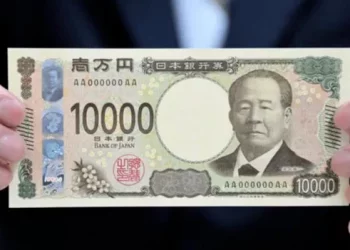The dollar rose on Thursday, hitting a one-week high against the Japanese yen, after Federal Reserve Chairman Jerome Powell said Fed policymakers are “not yet confident” that interest rates are high enough to end the fight against inflation.
The dollar index was last up 0.35% on the day at 105.86. The euro was down 0.37% at $1.0671. The dollar rose 0.21% to 151.29 Japanese yen, the highest since Nov. 1.
Traders remained on alert for possible intervention to support the struggling Japanese currency, which is near a one-year low of 151.74 hit last week.
The dollar’s rally in the wake of Powell’s comments also came after a brief spike higher on the back of a weak 30-year Treasury auction, which sent yields higher across Treasury maturities.
“I don’t think Powell said anything significantly new, but I think the markets took his comments as somewhat hawkish. But I also think the rates market was still a bit jittery after the auction, so higher yields were the path of least resistance,” said Vassili Serebriakov, a currency strategist at UBS in New York.
The dollar has benefited from the rise in Treasury yields in recent months, but fell last week as yields also fell sharply. This came after Powell was interpreted as striking a dovish tone after the Fed’s two-day meeting, with softer-than-expected jobs data on Friday adding to the belief that the Fed is done raising interest rates.
Some Fed officials have taken a more hawkish view this week, stressing that more rate hikes remain on the table if inflation doesn’t continue to move closer to the Fed’s 2% annual target.
“They don’t think their job on inflation is done. I think there is some divergence of opinion as to whether they should continue to hike. It seems like the base case is that they don’t, they want to be patient and assess how the impact of the hikes has translated into the economy,” Serebriakov said.
Richmond Fed President Thomas Barkin said on Thursday that while there has been “real progress” on inflation, he’s still unsure if the U.S. central bank will need to push its benchmark interest rate higher to finish the job.
Fed Bank of St. Louis Vice President Kathleen O’Neill Paese also said Thursday she’s concerned that those watching the central bank may not fully embrace its commitment to lowering inflation.
Fed funds futures traders are now pricing in a 25% chance of another hike by January, up from 19% on Thursday morning but down from 28% a week ago, according to CME Group’s FedWatch tool.
Traders are weighing whether the greenback is likely to weaken against other major currencies if the U.S. economy slows as expected, or whether even more gloomy growth outlooks in other regions will keep the dollar bid.
“The market is increasingly looking at growth rather than interest rate differentials as the driver in the currency market, and the market is increasingly coming to the conclusion that it’s only the U.S. that can continue to grow with interest rates in the 5% range,” said Adam Button, chief currency analyst at ForexLive in Toronto.
Meanwhile, traders will continue to focus on the Japanese Yen as it holds above the 150 level against the US Dollar, where Japanese authorities are seen as potentially intervening.
Concerns about possible intervention in the currency pair have also led some investors to bet on further Yen weakness against the Euro, rather than the Greenback. The single currency hit a 15-year high of 161.80 on Thursday.
The Australian dollar fell to a one-week low of $0.6364 on Thursday. It has tumbled since the Reserve Bank of Australia raised interest rates to a 12-year high on Tuesday but played down the likelihood of further increases.
In cryptocurrencies, bitcoin hit $37,978, the highest since May 2022, before falling back to $36,326.



























